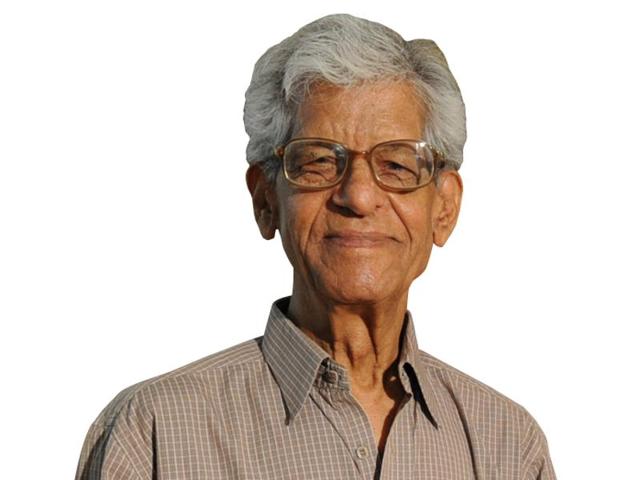Tata-Cyrus Mistry spat has hurt group’s reputation: Dwijendra Tripathi
Eminent business historian with a number of publications to his credit including The Oxford History of Indian Business and The Oxford History of Contemporary Business History, Dwijendra Tripathi talks about the recent ouster of Cyrus Mistry as chairman of Tata group, India’s largest conglomerate.
Eminent business historian with a number of publications to his credit including The Oxford History of Indian Business and The Oxford History of Contemporary Business History, Dwijendra Tripathi talks about the recent ouster of Cyrus Mistry as chairman of Tata group, India’s largest conglomerate.

A former professor of Indian Institute of Management, Ahmedabad (IIM-A), Tripathi talks about the controversy, its impact on the group and the lessons for corporate India and what it takes to be a successful chairman at Tata group.
Edited excerpts:
What is your view on the recent development in the Tata group where the board of Tata Sons decided to replace Cyrus Mistry as chairman?
It is very difficult to arrive at a judgment for part of what Ratan Tata and Cyrus Mistry said is true. Part of what they said is what they think happened. So whatever they have said that is in public domain should be taken with a pinch of salt. But one thing is for sure. It is for the first time in the history of Tata that dirty linen has been washed in public. As an admirer of Tata group what has happened should have been avoided. It has hurt Tata group both in terms of interest and reputation.
What according to you could have been the reason behind this spat that is now in the public?
One reason for this could be that for the first time a ‘non-Tata’ has been at the helm in the real sense of the term. In 1930s after Dorabji Tata passed away without naming a successor, Nowroji Saklatwala became the first chairman whose last name was not Tata. He was however related to the Tata family. Cyrus Mistry’s Shapoorji Pallonji group has been the single largest shareholders for a very long time in Tata Sons however they have lied low and seem to have never asserted their rights in Tata group so far. The Tata trusts, chaired by Ratan Tata hold about 66% stake in Tata Sons. So a decline in profits of Tata companies means that the Trust was losing more money that than Mistry’s Shapoorji Pallonji group. So heavily these losses might have weighed on Ratan Tata that it led to Mistry’s removal and his return as interim chairman.
How do you see the Tata-Cyrus public spat from a corporate governance view point?
Tatas are known for their civilized management. If there were any differences earlier, it has been resolved in a manner that the common public did not get to know. Fortunately for the Indian management, the Tatas never had such family members who created business disputes. So far they had an unbroken record of very high public behaviour. From a management point, I think it was inappropriate to keep a retired chairman (Ratan Tata) as part of the management and board after he relinquished power on his own and his successor (Cyrus Mistry) had been appointed. I also fail to understand why Cyrus was not given a chance to explain himself as it appears. Also what was the urgency that led to the no-confidence motion by the board members?
When Ratan Tata announced setting up a committee to find his successor it was for the first time that the group was seen to deviate from the customary practice of an outgoing chairman naming his successor. But when Mistry’s name was announced, a part of this lustre was taken away as many expected some professional with no direct link to Tata family to take charge.





